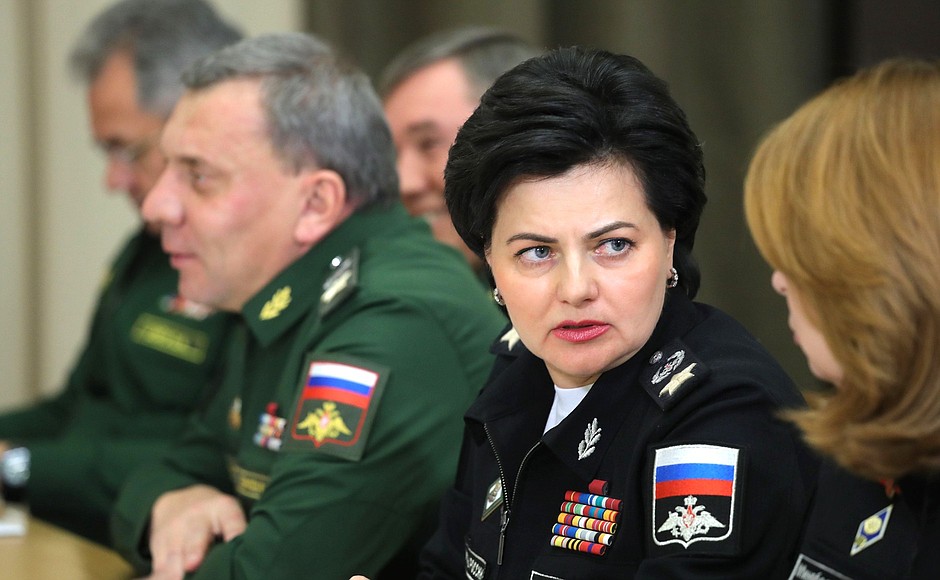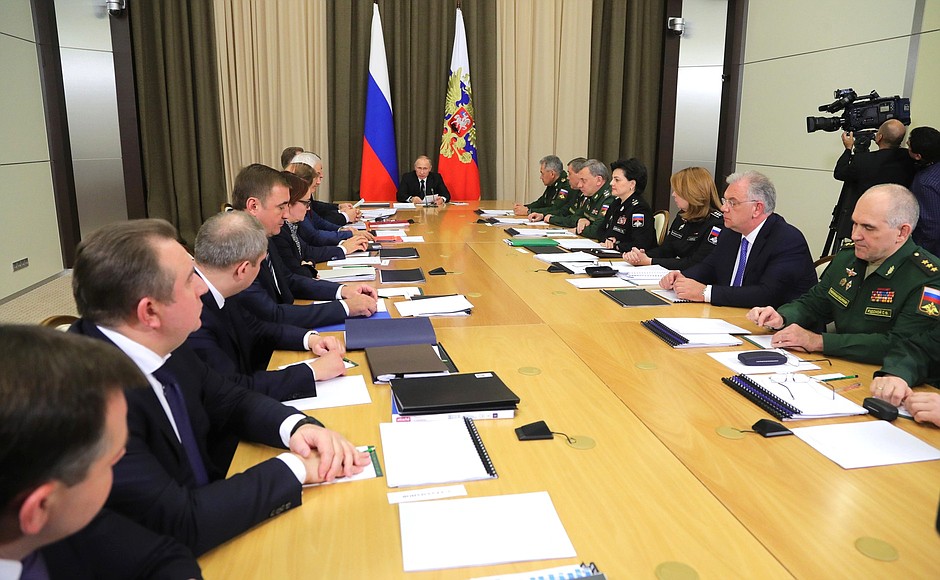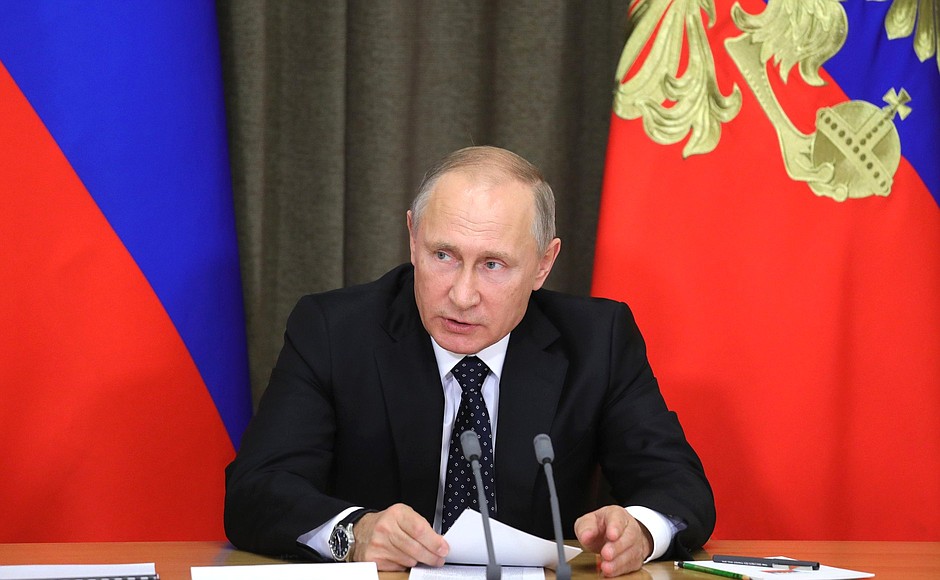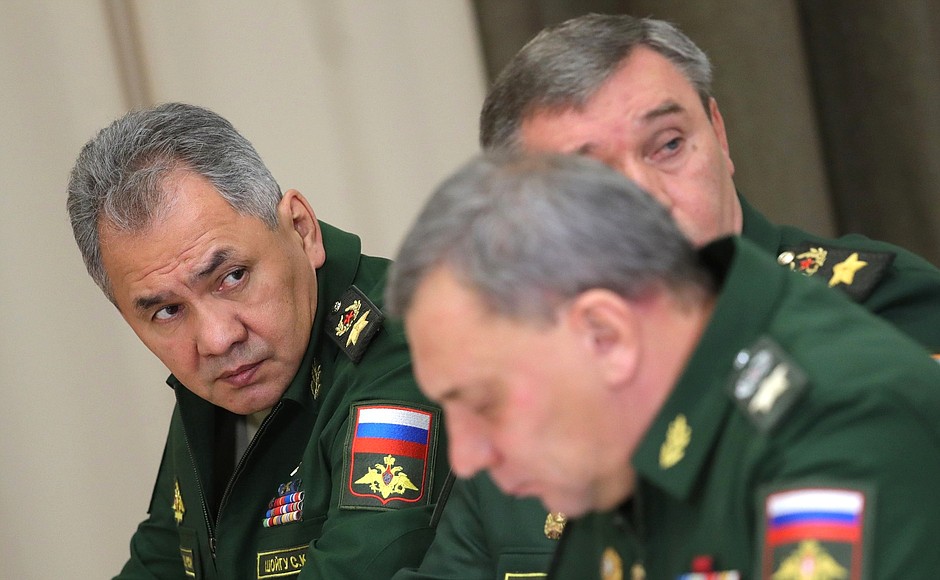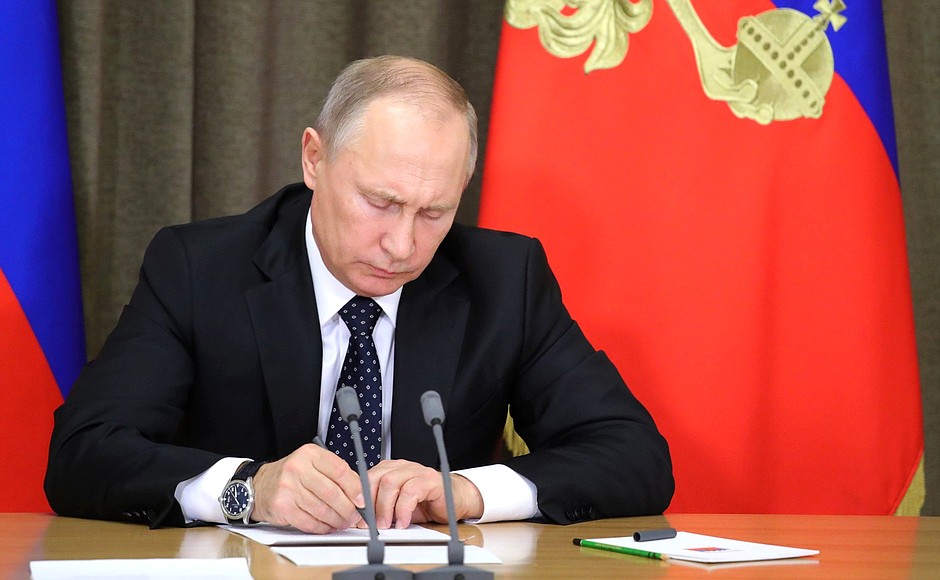President of Russia Vladimir Putin: Good afternoon.
Colleagues, today we are holding the final session in a series of meetings with officials from the Defence Ministry and major defence industry enterprises.
During our joint work, we have reviewed the major parts of the state armament programme and the implementation of the defence procurement order, and we have mapped out areas for the further development of the armament system and upgrading our capacity for mobilisation (yesterday we dealt with this subject alone).
See also
Now we will discuss resource provision for the technical refurbishing of the Armed Forces and analyse how well our defence industry and the MTC system are adapting to current economic conditions.
I have to say that the comprehensive modernisation of the Army and Navy continues as planned. The defence industry contractors are promptly resolving the most urgent production related issues.
Yes, there are still some problems but that is inevitable. There will always be problems and the only thing we can do is react promptly. But generally, the defence industry is meeting its commitments on the state procurement order.
As for problem areas, I would like to ask the Defence Ministry and leading enterprises to put together a separate analysis. In fact, such an analysis has already been made, but I would like to look at it again and see a separate report on how our defence industry has performed with modern arms systems during the anti-terrorist operation in Syria. This issue is being analysed, and I would like to hear a separate report on it, but not now and not here.
I would like to see how our industry representatives were doing in areas where Russia’s cutting-edge weapon systems were used. I know that engineers and even researchers and design teams were there, not just repair technicians. Let us see if we can analyze what they did, once again. Their efforts were interesting, timely and very efficient. Many improvements can be made when using the latest weapon design in a combat situation. Let us look at this one more time.
In this context, the potential of our military-industrial complex and the ongoing arms improvement, which I just touched on with regard to the use of such weapons in combat, is the reason Russia remains a leader in military exports and why it can strengthen its cooperation in military technology with other nations at a faster pace.
In 2017, Russian arms have been delivered to 59 countries. Stable military contracts have been concluded with 80 countries. What is important is that the stock of orders of Russian military products is not declining. This is a result, among other things, of the timely steps taken by the government to fund military-industrial companies, issue loans or otherwise assist them.
Still, we need to plan for the risks and assess the negative impact of the possible use of the external limitations that are already in place, and of the possible imposition of new limitations. We need to plan and undertake measures that will help us to respond to such a scenario quickly so that no harm comes from this possible outside influence.
Let us get to work.
<…>
